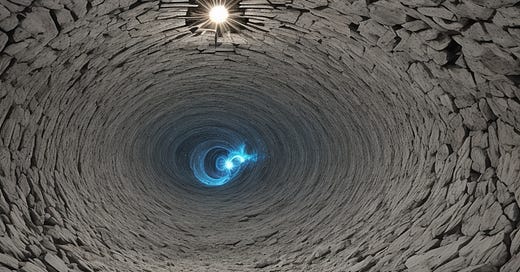Purgatory Proven? The Historical and Theological Case That Challenges Protestant Beliefs
Historical and Theological Development of the Doctrine of Purgatory
Introduction
The doctrine of purgatory has been a significant aspect of Catholic theology, positing an intermediate state where souls undergo purification before entering heaven. While it is a point of divergence between Catholic and Protestant beliefs, it is noteworthy that many Protestants acknowledge a process of final sanctification or purification after death, though they typically conceptualize it differently. This article will explore the historical and theological development of purgatory, addressing common Protestant objections by emphasizing the underlying similarities in their doctrines.
Historical Development of the Doctrine of Purgatory
The concept of purgatory evolved over centuries, drawing from Jewish, early Christian, and medieval theological traditions. Its roots can be traced to the intertestamental period, where Jewish writings, such as 2 Maccabees 12:45-46, suggest prayers for the dead to atone for their sins.
Early Christian thought, as seen in the writings of Church Fathers like Origen and Augustine, also hinted at a post-mortem purification process. Origen (c. 184-253) spoke of a purifying fire, while Augustine (354-430) articulated a more developed idea of a purgatorial fire cleansing venial sins. By the Middle Ages, theologians like Gregory the Great (c. 540-604) further refined the doctrine, leading to its formal articulation in the Second Council of Lyons (1274) and the Council of Florence (1439).
Theological Foundation of Purgatory
Theologically, purgatory is grounded in the understanding of God's justice and mercy. Catholic teaching holds that while Christ's sacrifice atones for sin, the temporal effects of sin may still require purification. This purification is seen as a merciful act of divine love, preparing souls to enter the presence of God in a state of perfect holiness.
Key scriptural references supporting the doctrine include 1 Corinthians 3:15, where Paul speaks of a fire testing the quality of each person's work, and Matthew 12:32, where Jesus mentions the possibility of forgiveness in the age to come. These passages, interpreted through the lens of Tradition, underpin the belief in an intermediate state of purification.
Protestant Views on Final Sanctification
Many Protestants, while rejecting the formal doctrine of purgatory, do acknowledge a process of final sanctification. This belief holds that at the moment of death, believers undergo a transformation, becoming fully sanctified and fit for heaven. This process is often viewed as instantaneous, contrasting with the Catholic view of a temporal purgation.
Prominent Protestant theologians have articulated this idea. John Calvin, for instance, argued for an immediate transformation at death, emphasizing the sufficiency of Christ's atoning work. However, the underlying agreement is that some form of purification or sanctification occurs after death, aligning with the Catholic view that souls must be purified to stand before God.
Addressing Protestant Objections
Common Protestant objections to purgatory include concerns about its scriptural basis and the sufficiency of Christ's sacrifice. By recognizing the shared belief in post-mortem purification, we can address these objections constructively.
Scriptural Basis: Protestants often argue that purgatory lacks clear biblical support. However, by highlighting passages like 1 Corinthians 3:15 and 2 Maccabees 12:45-46 (the latter of which is part of the Catholic canon), Catholics can show that the concept has scriptural roots. Moreover, the broader theological framework of purification aligns with the biblical themes of holiness and sanctification.
Sufficiency of Christ's Sacrifice: Protestants emphasize the sufficiency of Christ's atonement for sin, arguing that purgatory undermines this principle. Catholics, however, maintain that purgatory does not negate Christ's sacrifice but rather applies its merits to the purification of the soul. The temporal punishment for sin and the need for sanctification are seen as part of the process of being made holy, not as a substitute for Christ's redemptive work.
Nature of Sanctification: By recognizing that both traditions affirm the need for final sanctification, whether instantaneous or not, Catholics and Protestants can find common ground. The difference lies in the nature and duration of this purification, not in its necessity.
Conclusion
The doctrine of purgatory, while distinctively Catholic, finds resonance in the broader Christian belief in the need for post-mortem purification. Historical development and theological reflection have shaped its understanding, grounded in Scripture and Tradition. Addressing Protestant objections by emphasizing shared beliefs in final sanctification can foster a more nuanced dialogue, revealing a common commitment to the holiness and mercy of God.


